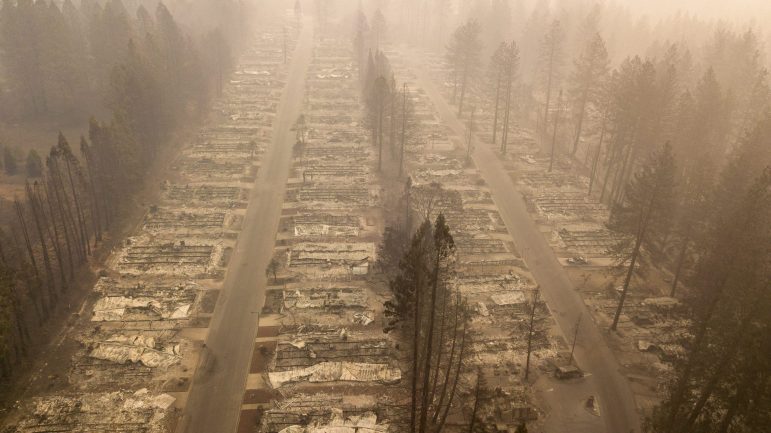Wildfire season in California is damaging, dreaded and, unfortunately, inevitable. And the most Californians can really do is brace themselves for the unexpected with tactics encouraged by fire officials and emergency response teams.
But, as wildfires begin to increase in duration and severity, the weeks and months of hazy skies may take a greater mental toll on Californians than their emergency kits or home hardening tactics can prepare them for.
David Eisenman, a professor at University of California Los Angeles’ community health sciences department, studies community resilience and behavioral responses to disaster and trauma. He recently presented his latest findings at a UC Symposium on wildfires last Wednesday, and his field of study was an outlier in a sea of statistics on climate change and landscaping tactics.
“Now there’s a lot of research on the acute traumatic mental health effects on people who have had their lives threatened or their homes destroyed by fire,” Eisenman said at the event. “But what about people whose homes and lives are not actually threatened by the flames? What do we know about the mental health effects of many weeks or even months of wildfire smoke exposure?”
Not enough, he concluded.
Eisenman, along with a team of researchers, looked into 30 year’s worth of preexisting research on smoke and mental health, but both qualitative and quantitative studies did not fully address the long-term effects.

One quantitative study from Indonesia in 2014 looked at the short-term effects of forest fires, and found an acute association to psychological stress and changes in cerebral blood flow. “They found out that the blood vessels to the brain were changed in how they dilated and constricted in response to the haze, and that those blood vessel changes were correlated with symptoms of anxiety, nervousness, nausea, headaches, and a bunch of other symptoms,” Eisenman said.
Another study from Canada found that smoke directly impacted communities who had to stay indoors, with subjects frequently citing feelings of fear, isolation and anxiety.
There’s three specific challenges to researching wildfire smoke like this, Eisenman said. For starters, the state-wide data on mental health historically derives from hospitals and care facilities, and diagnoses or hospitalization records would not be relevant to the study. It’s also difficult to assemble enough of a data set with only short-term events, as compared to years’ worth of effects for topics like industrial air pollution. And lastly, defining who is exposed and who is not is difficult when smoke covers vast areas (for example, remember that orange day in San Francisco last year?).

“The toxins in wildfire can be just as bad if not worse than industrial air pollution,” Eisenman said. “So there’s good reason to believe that these effects are going to be seen if we have these more of these prolonged wildfires, prolonged smoke.”
Though there’s room for more research, these studies did shed a light on mechanisms during wildfire season that could affect people’s outlook; for example, reduced physical activity, isolation from community, food insecurity and negative reminders. Eisenman also mentioned “solastalgia,” which is grieving the loss of land and climate change crises.
“Studies should focus on the chronic, persistent or repeated smoke events and should distinguish between the exacerbation of existing mental health states versus the impact on incidence of new symptoms,” the study concludes. “Quality of life should also be studied as an outcome.”